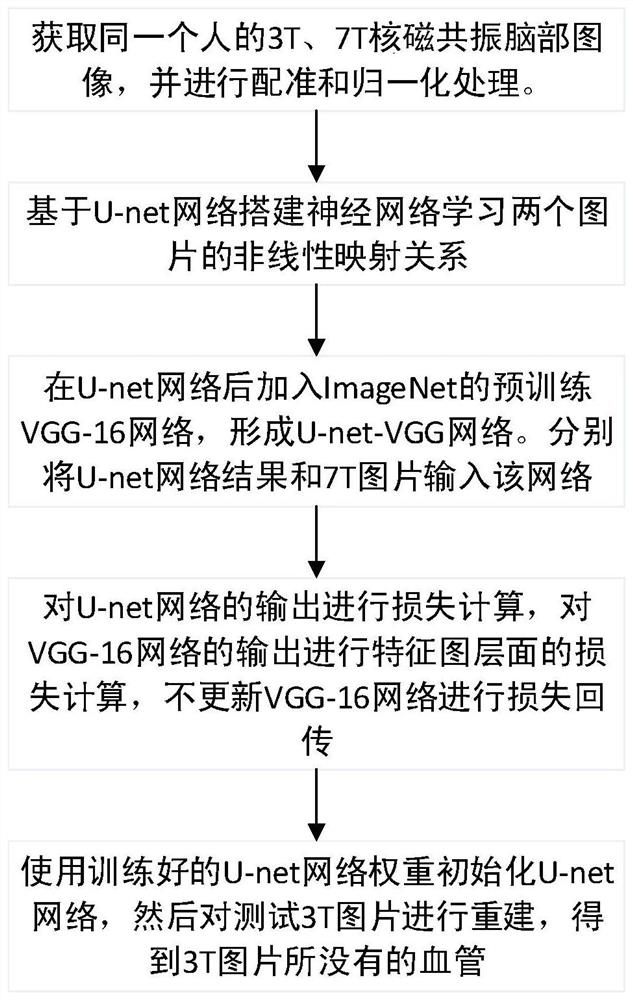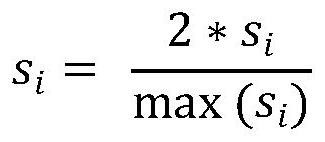Vascular reconstruction method of MRI brain images based on 3t and 7t
A technology of blood vessel reconstruction and nuclear magnetic resonance, applied in the direction of graphic image conversion, image data processing, 2D image generation, etc., can solve the problems of scarcity, expensive 7T equipment, and difficult to reconstruct pictures.
- Summary
- Abstract
- Description
- Claims
- Application Information
AI Technical Summary
Problems solved by technology
Method used
Image
Examples
Embodiment 1
[0042] Embodiment 1, based on 3T, 7T nuclear magnetic resonance brain image blood vessel reconstruction method, such as figure 1 shown, including the following steps:
[0043] S1: Obtain multiple 3T and 7T MRI brain images of the same person, perform image preprocessing on the 3T and 7T images, and obtain normalized images;
[0044] Preprocessing is to perform related operations on the image, aiming to improve its quality in order to increase the precision and accuracy of the processing algorithm in the next stage. Register the 3T and 7T MRI brain images of the same person (the original 3T and 7T images have different slice positions and angles, and the 3T and 7T images after registration are unified in angle and position, that is, each A 3T picture corresponds to a 7T picture). Afterwards for 3T pictures x 1 ,x 2 ,...x j ,...,x n and 7T picture y 1 ,y 2 ,...y j ,...,y n Each picture of is normalized, and the normalization method is shown in formula 1:
[0045]
...
PUM
 Login to View More
Login to View More Abstract
Description
Claims
Application Information
 Login to View More
Login to View More - R&D
- Intellectual Property
- Life Sciences
- Materials
- Tech Scout
- Unparalleled Data Quality
- Higher Quality Content
- 60% Fewer Hallucinations
Browse by: Latest US Patents, China's latest patents, Technical Efficacy Thesaurus, Application Domain, Technology Topic, Popular Technical Reports.
© 2025 PatSnap. All rights reserved.Legal|Privacy policy|Modern Slavery Act Transparency Statement|Sitemap|About US| Contact US: help@patsnap.com



